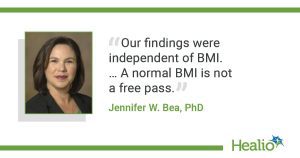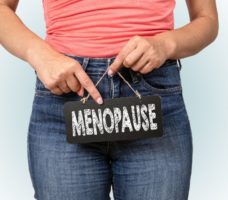It’s one of the most frequent questions that I’m asked, by patients and non-patients alike:
Let me say first: women’s sleep problems in their middle adult years aren’t only about menopause. These years in women’s lives are often profoundly busy and complicated. They may be deeply immersed in demanding careers, raising children, caring for aging parents, volunteering in their communities—or all of the above. And of course, other health conditions can impact sleep, apart from menopause.
With jam-packed schedules, layer upon layer of responsibility, and often a lot of stress, sleep issues for women in their 40s, 50s and 60s would be likely even without a major biological change unfolding over a period of several years.
But major biological transition is what’s also happening to women in during these years. And menopause can bring with it significant challenges to sleep. In order to protect your health, keep your performance sharp, and maintain your quality of life and relationships, it’s essential for you to know how menopause affects your sleep, and what you can do to sleep well throughout all its stages.
To get this important menopause-sleep conversation started, I’ll talk first about how the hormones estrogen and progesterone influence sleep and other aspects of women’s health. I’ll also break out the stages of menopause, and the sleep difficulties that arise within each.
Women’s hormones and sleep
Menopause is driven by the decline in production of hormones, most significantly the hormones estrogen, progesterone, and testosterone. These hormones work together to regulate a woman’s reproductive function and menstrual cycle. They also affect mood, energy, sexual drive, cognitive and emotional abilities—and sleep—throughout a woman’s life. Let’s quickly take a closer look at each.
Estrogen is the primary sex hormone in women, the hormone that plays the most significant role in regulating a woman’s reproductive function and her monthly menstrual cycle. Many women I talk with don’t know about the many other ways estrogen contributes to their health and performance. Estrogen supports women’s cardiovascular health, their cognitive performance, and mood, their strong bones, and their healthy weight management.
Estrogen also promotes healthy sleep. Estrogen helps the body use serotonin and other neurochemicals that assist sleep. Estrogen contributes to higher-quality sleep, with fewer awakenings throughout the night, and less time needed to fall asleep. When I talk to my patients about estrogen, I describe it as a great protector of women’s sleep and overall health.
Higher levels of estrogen are associated with a more positive mood, clear, elastic skin, greater energy and mental sharpness, and sound sleep. Low estrogen is associated with anxiety and low mood, fatigue, difficulty concentrating, physical pain including headache and migraine, weight gain, and disrupted sleep. One of the common early signs of menopause is insomnia.
Estrogen levels fluctuate significantly throughout the menopausal transition, then eventually fall to low levels, where they remain throughout a woman’s post-menopausal life.
Progesterone works to balance the effects of estrogen, and to prepare a woman’s body for pregnancy with each monthly cycle. This hormone plays a key role throughout pregnancy and in preparing a woman’s body for labor as well as breastfeeding. Progesterone helps regulate mood, protecting against anxiety and depression. It also promotes the growth of new bone tissue—the loss of progesterone contributes to the risk of osteoporosis among post-menopausal women.
I think of progesterone as largely a sleep-promoting, “feel good” hormone for women. Higher levels of progesterone tend to promote a sense of calm, boosting relaxation and facilitating sleep. High levels of progesterone–especially during pregnancy, when a woman’s progesterone levels surge–can also make you feel sleepy during the day. Progesterone increases production of GABA, a neurotransmitter that helps sleep. Low progesterone can bring about anxiety and restlessness, and trouble sleeping, including a tendency to wake frequently during the night.
A woman’s body stops producing progesterone once she enters menopause.
Testosterone is produced at lower levels in women than in men. Many of my patients are surprised when I talk about how testosterone is important to women—particularly to their sex drive. For women, testosterone plays an important part in helping the body produce estrogen. It also boosts sexual desire, as well as energy levels, and contributes to greater muscle and bone mass. A woman continues to produce testosterone throughout her life, but levels decline with age.
As these hormones fluctuate and decline throughout the stages of menopause, sleep often becomes increasingly disrupted. By the time they reach perimenopause, many women are routinely having a hard time falling asleep and sleeping soundly throughout the night.
Next time we will discuss the stages of menopause and how they might be affecting your sleep.
Sweet Dreams,
Michael J. Breus, PhD, DABSM
The Sleep Doctor™
www.thesleepdoctor.com
This content was originally published here.








